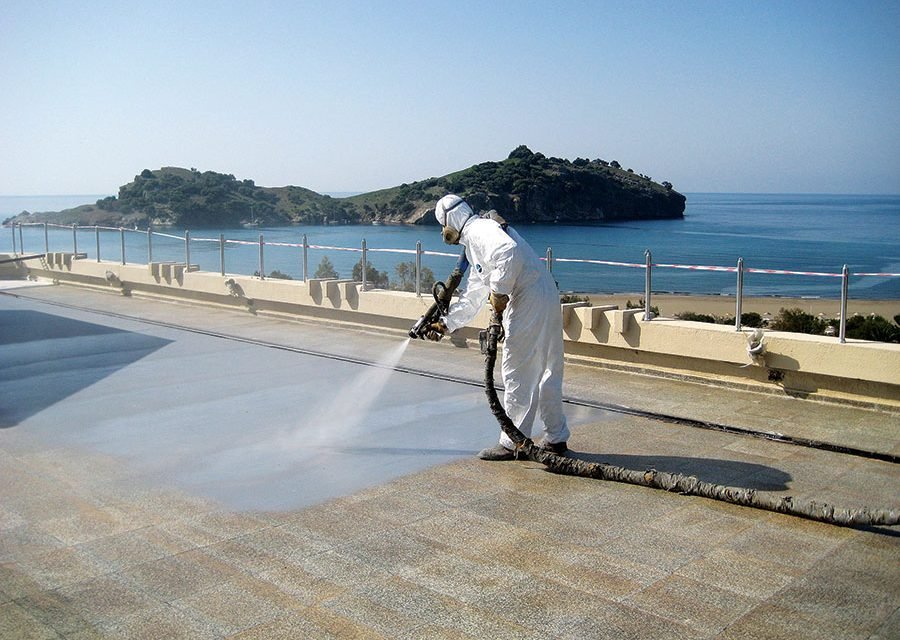Polyurea has become a coating technology widely used across a broad swath of industries such as construction, automotive and infrastructure. Its unique characteristics make it suitable for applications showcasing its impact and the advantages it brings.
The durability and flexibility of polyurea are two of the most well-known qualities of this technology. When applied, it creates a coating that can withstand challenging conditions. This feature makes it a preferred choice for safeguarding surfaces in environments. For instance, polyurea is commonly applied to equipment and machinery to shield them from corrosion, abrasion and chemical exposure thereby prolonging their lifespan and reducing maintenance expenses.
Within the construction sector polyurea serves a role in many different areas. Foundations, roofs and other structural elements require protection against water damage. Polyurea’s ability to form a watertight seal makes it an ideal choice for these purposes. It bonds with substrates like concrete and metal to ensure thorough coverage. By preventing issues like mold growth and structural decay this waterproofing capability helps enhance the longevity of buildings.
Moreover, polyurea finds utility in infrastructure developments well. Structures such as bridges, tunnels and pipelines face wear and tear. Applying polyurea to these installations provides an extra layer of protection against environmental elements.
Polyurea coatings safeguard bridges against the impacts of moisture, salt, and temperature changes. This protective shield is crucial for preserving the integrity and safety of these infrastructures.
In the industry, polyurea serves a purpose by safeguarding both the interior and exterior of vehicles. Externally, these coatings provide defense against scratches, dings, and UV rays. Particularly beneficial for vehicles operating in terrains like off road vehicles and trucks. Internally polyurea is utilized to protect high wear surfaces such as floors and cargo areas thanks to its resilience against impacts and chemicals that help maintain their quality with use.
Furthermore, polyurea finds application in the marine sector where boats and ships face exposure to water and harsh weather conditions leading to potential corrosion. By forming a barrier polyurea shields the hulls and other surfaces from saltwater damage effectively. Its flexibility allows it to move along, with the vessel preventing cracks or leaks that could compromise its integrity.
In settings polyurea is employed for lining containment areas designed to house materials effectively.
Polyurea serves as a barrier, in settings from chemical storage sites to landfills effectively preventing leaks and environmental contamination. Its application is crucial for safeguarding health and the surrounding ecosystem.
Apart from its properties polyurea is prized for its curing time. Unlike traditional coatings, polyurea solidifies within minutes. This quick drying process enables projects to be finished swiftly reducing downtime and operational disruptions. Industries with time constraints, such as manufacturing, and construction greatly benefit from this accelerated curing feature.
The aesthetic appeal of polyurea should not be underestimated. Its capability to be. Textured allows for customization to match the surface it safeguards. This versatility makes polyurea a favored option for purposes like coating floors or creating textured wall surfaces. Its durability ensures longevity in high traffic areas.
In the sector polyurea coatings find utility in protecting equipment and storage facilities exposed to moisture, chemicals and wear. Application of polyurea on these surfaces forms a shield that prolongs their lifespan. For instance, using polyurea coatings on silos and tanks prevents corrosion and contamination ensuring the safety and purity of stored materials.
Polyurea is increasingly being utilized in the energy sector. For example, wind turbines benefit from polyurea coatings that shield the blades and towers from harm ensuring their efficiency and durability. In the oil and gas industry polyurea is applied to protect pipelines and storage tanks preventing corrosion and leaks that could result in hazardous spills.
Polyurea also plays a role in the safety and security domain by forming blast coatings for structures and vehicles. These coatings absorb explosion energy minimizing damage and safeguarding occupants for military facilities, government buildings and critical infrastructure protection.
In summary polyurea’s versatility makes it a valuable material across industries. Its protective properties, flexibility and rapid curing time meet application requirements effectively. Whether safeguarding equipment, waterproofing structures or enhancing vehicle resilience polyurea provides a solution that enhances surface longevity and performance. With industries evolving continuously the utilization of polyurea is expected to broaden opportunities, for its implementation while showcasing its value.
Read Also: The Rhythmz of Commercial Carpet Cleaning Frequency
